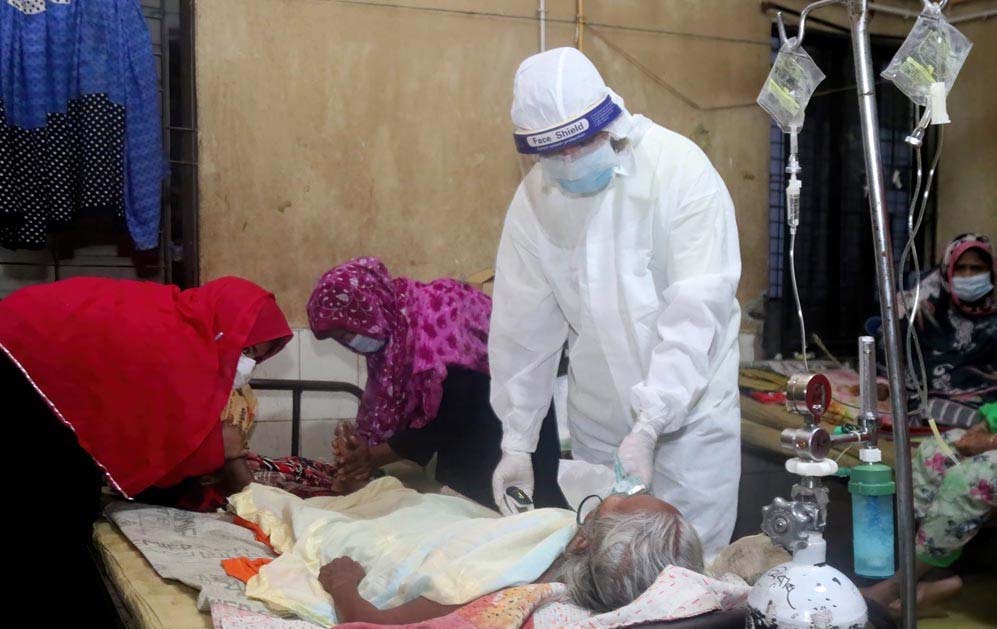It only takes a quick glance at the annual budgetary allotment for healthcare to see how dreadful our disregard for the health industry is. The budget allocation as a percentage of GDP has been declining, falling to 0.83 percent in the current fiscal year. However, the World Health Organization (WHO) recommends that it be at least 5%. Bangladesh has the lowest health spending as a percentage of GDP in South Asia. Currently, we are responsible for covering 72% of our own medical costs.
Universal health coverage (UHC), which guarantees that everyone has access to high-quality healthcare as needed regardless of budgetary limitations, is a commitment made by WHO to all member states. In order to achieve UHC, global health insurance is a crucial regulator. Many nations around the world are striving toward obtaining UHC through private optional health insurance, community-based health insurance, required social health insurance funded by payroll taxes, etc. It took Germany and France more than a century to provide social insurance to every member of their population. For many years, low- and middle-income nations in Asia, Africa, and Latin America have worked to enact social health insurance that is required and funded by labor taxes.
However, Bangladesh has never even considered establishing universal health coverage, let alone implementing it. Although the nation`s current administration did promise to develop and implement UHC, little has been accomplished in this regard. Our economy has not been significantly impacted by Covid-19 or the current war in Russia and Ukraine. Bangladesh should be able to boost the budget for the health sector without negatively impacting the economy`s dynamics, according to macroeconomic data.
Do our policymakers understand that investing in the health sector is a requirement for sustainable development? Spending money on healthcare is not the only benefit; it also helps to reduce inequality and poverty and benefits the economy in many other ways. Increased labor force availability, a better contribution to education, employment opportunities for women, and stronger economic production can all be attributed to investments in the health sector.
Are our policymakers aware that spending on healthcare is essential to sustainable development? Spending money on healthcare is not the only economic benefit; it also helps to reduce inequality and poverty in many different ways. Investment in the health sector will result in increased access to the labor force, a better contribution to education, employment prospects for women, and higher economic production.
The need to increase the government budget for our health sector is now beyond debate. In the next national budget, therefore, the health allocation should be increased to two percent of GDP. The finance minister should think about how he will allocate this money. The WHO recommends allocating at least five percent of GDP or 15 percent of the budget to the health sector. An increase in health spending per one percent of GDP would protect 0.13 percent of the population from falling into financial disaster.
The challenges of healthcare delivery are mainly twofold: financing and service delivery. Corruption in the health sector, doctors` misconduct, and the lack of capacity to implement the budget are the highlights among the issues. Prioritization of cost management should be done by accepting the reality of the financial crisis in healthcare. Priority should be given to the inclusion of the poor and vulnerable groups to the maximum extent, and which services are possible to deliver should be taken into consideration. A strong stance should be taken against corruption. Expenditure and results in the health sector should be presented transparently in front of the people. A government survey found that 63 percent of the individual`s out-of-pocket expenses were on medicines. A strong primary healthcare system plays the most cost-effective role in achieving universal health coverage.
Public healthcare programmes should be implemented through all-out initiatives to prevent diseases. The government should develop a flawless structure capable of fair understanding with drug and medical device manufacturers to procure and supply medicines, medical supplies and new technologies. Help should be provided to build non-profit private healthcare. Differences in service quality and cost between public and private healthcare systems should be reduced, if not eliminated. In addition to public and private healthcare, there should be an opportunity for NGOs to work as a complementary body with the self-sacrificing attitude and capacity to engage in healthcare. The government also must invest in the improvement of the quality of life of healthcare workers.
JH






